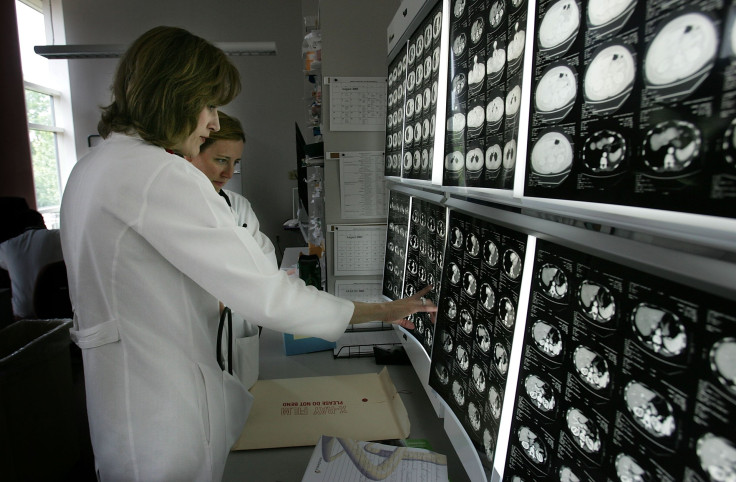Woman Without Ovaries Shocked By Ovarian Cyst Misdiagnosis, Learns She Had Appendicitis
A 42-year-old woman has gone viral on TikTok after sharing that she was diagnosed with an ovarian cyst by doctors even though she had her ovaries removed a decade prior.
When Amanda Buschelman started to feel pain on the right side of her abdomen, she knew something was not right inside her body. She went to see her family doctor, and the latter had an inkling that it could be appendicitis.
“He did a quick outer pelvic exam, pushing on my abdomen. He was like, ‘Oh my gosh, I think you have appendicitis. He’s like, 'You need to go straight to the emergency room,’” the mom of three told Today.com.
She did what she was told. But Buschelman was stunned when she received her diagnosis at the closest emergency room. A doctor told her that she had an ovarian cyst after a physician assistant examined her and performed a scan to look at her appendix.
Buschelman, who hails from Cincinnati, Ohio, was startled not by the thought of having an ovarian cyst instead of appendicitis. She was surprised to hear about a cyst on her ovary because she had a “complete hysterectomy” ten years prior.
“He’s like, ‘Well, I got the report back from the radiologist, and you have a cyst on your ovary.’ My mom looked at me in complete shock and awe because we both know I don’t have any ovaries. I was like, ‘Well, that’s not possible because I had a complete hysterectomy 10 years ago,'" she shared.
The situation got more awkward when the doctor “mansplained” to her that a hysterectomy did not entail the removal of the ovaries. She then admitted that she might have been using the incorrect terminology to explain her case, but she was certain that her ovaries were removed alongside her uterus as part of her treatment for endometriosis.
When the doctor showed her the imaging of a dot inside her, she thought the procedure done to her a decade prior was not effective. Meanwhile, the doctor remained skeptical that she had her ovaries removed. Fortunately, her medical records proved that she did have her ovaries removed as part of her previous surgery.
The doctor eventually prescribed an antibiotic for what he believed was diverticulitis, an inflammation in the digestive tract. Buschelman went home. But she “cried and suffered” in pain over the weekend. By Monday, she asked her family doctor if she could visit a gastrointestinal specialist or her OB-GYN because her condition was not improving. Her doctor insisted that she had appendicitis and needed surgery for it.
The Mayo Clinic defines appendicitis as an inflammation of the appendix — the finger-shaped organ that projects from the colon on the lower right side of the abdomen. It is characterized by pain in the lower right abdomen that starts around the navel. The pain becomes severe as the inflammation worsens.
Appendicitis is commonly caused by infections, tumors or the accumulation of calcified feces in the appendix. About 250,000 people in the U.S. are diagnosed with acute appendicitis each year. Around 8.6% of men and 6.7% of women in the country are diagnosed with the condition over their lifetimes, according to an article published in JAMA Network.
Buschelman reluctantly returned to the ER and consulted a different doctor. But instead of believing that she had appendicitis based on her symptoms, the doctor ordered another scan and diagnosed her with “a mass or a tumor.”
Eventually, Buschelman was sent home and told to see her OB-GYN. The latter ordered a transvaginal ultrasound and found something but said it was unlikely cancer. Her OB-GYN assumed some leftover endometriosis was causing the problem and gave her an option to wait and watch or schedule surgery. She opted for the latter since she was still suffering from a lot of pain.
Buschelman had to wait for two weeks for the procedure. When the day arrived for her surgery, a shocking news was delivered to her by her husband when she woke up. “The first thing my husband said was, ‘Did they tell you what happened?’ and I said, ‘Oh my gosh, no, what happened?’ He said, ‘They took your appendix. You had appendicitis.’”
Unsettled by her experience, Buschelman decided to share her story on TikTok. To her surprise, many people, mostly women, reached out to her, sharing similar experiences. According to her, she’s glad she persisted in getting medical care. But now she worries that other people may not be getting the medical help they need due to misdiagnoses.

Published by Medicaldaily.com



























